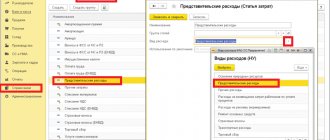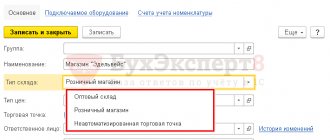The main account has been replenished. Postings on deposit transactions for 51 accounts Let's assume that Osen LLC transferred 2,000,000 rubles to the deposit. at 10.5% per annum (compound interest) for one year. At the same time, 50,000.00 rub. 51 counts. accounting account 51. debit 51 account Each operation for the movement of funds on a current account must be documented with a primary document: a check, payment order, collection order, announcement for a cash contribution, and the corresponding accounting entry: Important! In case of overdue tax debt, the Federal Tax Service can issue a payment demand to the organization, which the bank will fulfill first of all without the participation of the debtor.
What is account 50 51 in accounting
Info
By Andrey Nazarov / March 24th, 2021 / Budget law / No Comments The main cash transactions include:
- acceptance/issuance of cash, its storage;
- compliance with the cash limit;
- records management;
- depositing funds into the bank.
To record transactions on the presence and movement of cash that are in the cash desk of the enterprise, account 50 is used. The accountant reflects the amounts of funds issued using Kt 50, when cash arrives at the cash desk - according to Dt 50. It should be emphasized that all transactions with cash that is in cash register of the organization must be reflected in the cash book.
The basis for making entries are cash receipts and expenses (form KO-1 and KO-2).
Accounting records for writing off unrealistic (uncollectible) and doubtful debts
Write-off of unrealistic (uncollectible) and doubtful receivables (for income, sources of financing the budget deficit, granted loans, advances) relates to subarticle 173 “Extraordinary income from transactions with assets” of the KOSGU (clause 9.7.3 of the procedure, approved by order of the Ministry of Finance Russia dated November 29, 2017 No. 209n, hereinafter referred to as Procedure No. 209n).
More on the topic: Linking KBK and KOSGU. Common mistakes (Video materials for annual reporting 2021: topic 1)
Unrealistic (unreliable) for collection, doubtful receivables for expenses (for advance payments made, for state and municipal guarantees for which equivalent claims do not arise on the part of the guarantor to the debtor) are written off to subarticle 273 “Extraordinary expenses for transactions with assets” of KOSGU ( clause 10.7.3 of Order No. 209n).
Transactions are reflected in accordance with paragraphs. 78, 80, 82, 84 instructions, approved. by order of the Ministry of Finance of Russia dated December 6, 2010 No. 162n (for government institutions), paragraphs. 94, 98, 102, 106, 152 instructions, approved. by order of the Ministry of Finance of Russia dated December 16, 2010 No. 174n (for budgetary institutions), paragraphs. 97, 101, 105, 109, 180 instructions, approved. by order of the Ministry of Finance of Russia dated December 23, 2010 No. 183n (for autonomous institutions).
Accounting entries are reflected in correspondence with accounts 040110173 “Extraordinary income from transactions with assets”, 040120273 “Extraordinary expenses on transactions with assets”. In 1 – 17 digits of accounts the same code is indicated as that of the settlement account corresponding to them.
Doubtful debts written off from the balance sheet are accounted for in off-balance sheet account 04 (clause 339 of Instruction No. 157n).
Example 1. A budgetary educational institution provides paid educational services. The accounts include doubtful accounts receivable for the education of children who graduated from school. The institution's commission decided to write off the debt from the balance sheet to the off-balance sheet to monitor the possibility of collection.
Debit KDB 2,401 10,173 Credit KDB 2,205 31,667 – doubtful debts are written off from the balance sheet;
Increase in off-balance sheet account 04 – debt accepted on off-balance sheet.
Example 2. A budgetary educational institution has accounts receivable for advance payment for materials. The counterparty is declared insolvent. The institution's commission decided to write off doubtful debts from the balance sheet to the off-balance sheet to monitor the possibility of collection.
Debit KRB 2,401 20,273 Credit KRB 2,206 34,664 – doubtful debts are written off from the balance sheet;
Increase in off-balance sheet account 04 – debt accepted on off-balance sheet.
Account 50 in accounting: typical entries, examples
Subaccount 55-2 “Checkbooks” takes into account the movement of funds in checkbooks. The deposit of funds when issuing check books is reflected in the debit of account 55 “Special accounts in banks” and the credit of accounts 51 “Currency accounts”, 52 “Currency accounts”, 66 “Settlements for short-term loans and borrowings” and other similar accounts. Amounts from checkbooks received from a credit institution are written off as checks issued by the organization are paid, i.e. in the amounts of repayment by the credit institution of checks presented to it (according to statements of the credit institution), from the credit of account 55 “Special accounts in banks” to the debit of settlement accounts (76 “Settlements with various debtors and creditors”, etc.).
Penny debts and balances: how to write them off?
What to do with debt balances? There is probably no need to explain that, as a general rule, to write off a debt in accounting accumulated on accounts with counterparties (36, 37, 63, 68) only when such debt, in fact, becomes hopeless (does not correspond to an asset or liability) . Moreover, there are no exceptions to the amounts for this rule! So, let us remind you:
1) in terms of receivables (balances on accounts 36, 37 ), current receivables are recognized as uncollectible, in relation to which there is confidence in their non-repayment by the debtor or for which the statute of limitations has expired ( clause 4 P(S)BU 10
).
If at least one criterion is met, such a receivable is subject to write-off , since it ceases to meet the criteria for recognition as an asset in accordance with clause 5 of P(S)BU 10
.
Write off a bad receivable ( clause 11 P(S)BU 10
):
- for which the reserve for doubtful debts (RDD) was created - at the expense of the amount of such created RSD;
- for which RSD is not created (or the amount of RSD is not enough) - included in other operating expenses;
2) in terms of accounts payable (balances on accounts 63, 68), liabilities are considered to be written off if they are not repayable . In this case, the creditor’s amount is included in the income of the reporting period ( clause 5 P(S)BU 11
).
As a rule, one can confidently speak about the non-repayment of the creditor if the statute of limitations has expired or the creditor has been liquidated without a legal successor.
In our opinion, the ironclad basis for recognizing a bad liquidation debt and writing it off will be a message from the creditor/liquidator that there are no claims against the debtor regarding the debt.
To write off, you will have to: ( 1 ) conduct an inventory of receivables and liabilities; ( 2 ) collect documents confirming the expiration of the statute of limitations or the impossibility of collecting the debt; ( 3 ) justify the occurrence of such debts and the need to write them off. And after writing off the receivables, also take them into account in off-balance sheet subaccount 071 “Written off receivables” for 3 years from the date of write-off. These are the rules!
In our case, the company deals with penny balances on accounts with counterparties (36, 37, 63, 68). Yes, yes, it is quite possible! Indeed, unlike cash payments, during non-cash payments rounding is not carried out (due to the withdrawal of 1-, 2- and 5-kopeck coins from circulation).
Moreover, an important point : the company is confident that such penny balances of receivables/payables, judging by the current situation, will definitely not be repaid.
Is it enough to just be confident that the debt will not be repaid to write off stuck penny balances on settlements with counterparties? Or do I have to wait 3 years?
Penny balances on accounts receivable
.
To write off the penny balances on receivables formed in the process of settlements with counterparties, you do not need to wait 3 years (the expiration of the statute of limitations).
For accounts receivable, you can use your own professional judgment and write off the hanging penny balances, justifying such a write-off by the fact that the debtors do not intend to return the pennies. The argument for non-repayment of kopecks is that the expenses necessary to repay them (for example, bank commissions, etc.) are not economically feasible, since they are many times higher than the penny debt itself.
To do this, the commission (responsible employee) draws up a document in which it describes the reasons for writing off penny balances on receivables and submits it to the head of the enterprise for approval.
As soon as the manager approves such a write-off, write off the penny remains of such hopeless receivables directly as part of other operating expenses ( Dt 944 - Kt 36, 37), if you did not create RSD .
However, do not forget to send the written-off amount to the off-balance sheet in the debit of subaccount 071, where it will have to be taken into account for at least 3 years from the date of write-off. And only after this period has passed it will be possible to finally write it off from the balance sheet.
Penny balances on the creditor
.
There are more problems with writing off a creditor: P(S) Accounting Regulations
do not provide grounds for writing it off at will/confidence of non-repayment.
For a creditor to be considered non-dischargeable, at least 3 years of the statute of limitations must have passed.
At the same time, if you write off the penny balances on the creditor as income now, what will the company get for it? It looks like nothing.
The weak link is tax accounting. After all, it is possible that tax authorities will begin to say: income was reflected in the wrong period and, accordingly, affected the accounting financial result at the wrong time - the object of taxation on profits. However, during the period of writing off the creditor for excess income, they certainly will not fine you, but when, after three years, the period of their reflection comes, the tax authorities may not even remember about these pennies.
It is clear that the ideal option for writing off is to receive from each counterparty-creditor an Act of reconciliation of settlements with debt forgiveness for the amount of the stuck kopecks. And having thus confirmed the forgiveness of the debt from each creditor, calmly write off the penny balances to subaccount 717 in correspondence with Dt 63, 68.
However, ask yourself: is so much fuss justified over such a cheap issue?
So let's go back to the simple way - writing off the penny balances on the creditor based on your own decision. If you deliberately make a mistake in this way, you must remember about the distortion of financial statements.
Please note! For financial statements to be reliable, they must be free from errors and misstatements that could influence the decisions of their users. First of all, it should not contain significant errors .
What errors are significant?
The materiality of accounting information is determined by both quantitative criteria and qualitative characteristics that are significant to its users.
Surely your order on accounting policies contains quantitative criteria for the materiality of information about business transactions.
Let us remind you: these criteria are determined by the relevant P(S)BU
or
IFRS
and the management of the enterprise (
clause 3, section I of NP(S)BU 1
).
Approaches to determining criteria for the materiality of information about business transactions, events and financial reporting items are set out in paragraph 2.20 of Method Recommendations No. 635
*.
* Methodological recommendations on the accounting policy of the enterprise, approved by order of the Ministry of Finance dated June 27, 2013 No. 635
.
The ranges of quantitative criteria for the materiality of accounting information in relation to individual accounting objects, proposed by the Ministry of Finance, are also presented there.
Thus, an error that fits into the established criteria of materiality is considered significant. But minor errors do not deprive financial statements of their reliable status. That is, if the write-off of accounts payable is insignificant, then we can say that the financial statements are not distorted.
Therefore, look: if a penny creditor with all counterparties ultimately amounts to an insignificant amount (as in your case - up to 50 UAH), then writing it off in the current period can be regarded as an insignificant error that will not distort the financial statements. The financial statements for this period will be considered reliable.
True, keep in mind: P(S)BU 6
, in fact, requires correcting absolutely all errors made in the financial statements, including immaterial ones.
However, when correcting minor errors, re-publication of financial statements is not required ( clause 20.3 P(S)BU 6 , letter of the Ministry of Finance dated August 15, 2016 No. 31-11410-07/23-2644/2467
).
Employee creditor
. However, not all creditors with a penny amount can be written off without hesitation. Untouchable are the suspended obligations to employees: (1) regarding wages; (2) according to cash reporting to the employees of the enterprise.
It is better not to write off creditor balances on accounts with employees until they are repaid.
Try to prevent such a creditor from appearing. Otherwise, the employer may face a fine under Art. 265 Labor Code
, and officials - administrative responsibility provided for
in Part 1 of Art.
41 KUoAP .
Tax accounting
.
The company, being a highly profitable enterprise, calculates the differences in tax accounting. And here you need to understand that when writing off hanging penny balances of receivables in accounting, he will be expected to face the difference established by paragraphs.
139.2.1 Tax Code , in the form
of an increase in financial results by the amount of expenses from writing off accounts receivable in accounting in excess of the amount of the reserve for doubtful debts. But the reducing difference provided for in paragraphs.
139.2.2 of the Tax Code , there will be no penny receivables for the amount of the written-off penny receivables, since it does not meet the criteria of a bad debt from
paragraphs.
14.1.11 NKU (Wed. 025069200).
At the same time, taking into account that the income tax declaration is filled out in hryvnias, the company will have to show in page 2.1.3 of Appendix PI to the declaration the difference that increases the financial result if the amount of kopeck receivables written off as expenses is at least 50 kopecks.
When writing off kopecks from a creditor, an enterprise, regardless of profitability in tax accounting, is guided exclusively by accounting rules . No tax-profitable differences when writing off the creditor Institution
does not provide.
Tax authorities also agree with this (see INK GNSU dated 12/09/2019 No. 1789/6/99-00-07-02-02-15/IPK
and
SFSU dated July 30, 2019 No. 3563/6/99-99-15-03-02-15/IPK
).
Accounting: 51 “current account” accounts
Any economic activity of an organization is impossible without the movement of financial flows. Cash is involved in all processes occurring in enterprises of any form of ownership. Purchasing working capital, investing in fixed production assets, settlements with budgets of different levels, founders, employees of the enterprise - all production and administrative actions are carried out with the help of money and with the aim of obtaining it.
Attention
Types of payments In practice, two main types of payments are used - cash and non-cash. Cash, as a rule, is used for small volumes of cash flow - these are one-time payments that can be made through the company's cash desk. For small businesses with low turnover and modest income, using cash is the best option.









